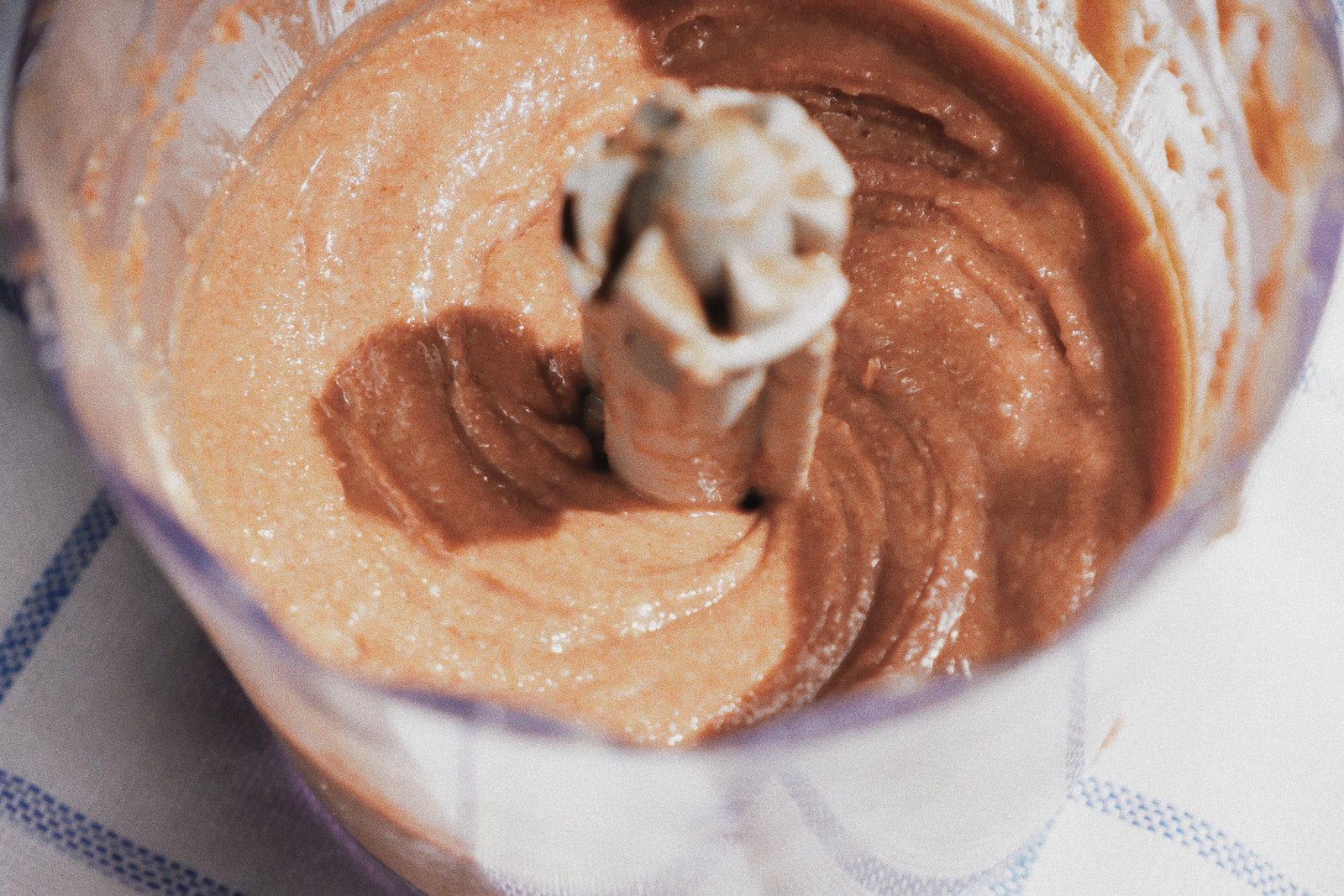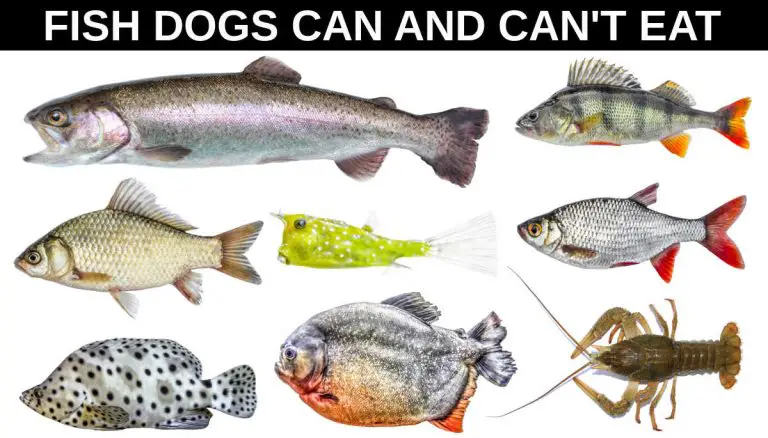After a tough and tiring day at work, the only thing that replenishes my strength is the way Lester, my dog, welcome me. Lester is a 2.5 years old Siberian Husky, that was gifted to me by a client, after the successful completion of a project.
Lester is cordial, bouncy and kittenish. Besides being a happy and playful pooch, Lester possesses a perennial fondness for food. One food item that sends Lester into a state of extreme euphoria is Almond Butter. Oh! How he craves it.
A mere glance at the almond butter jar and you will find Lester jumping and howling, with excitement. Seeing the way he consumes almond butter, I often ask myself, can dogs eat almond butter?

Is Almond Butter Safe for Dogs?
Almond butter, sounds strange right? Up until now, you must have only heard about dogs eating a peanut. Interestingly, dogs love almond butter just as much as they love peanut butter.
To answer the question “can dogs eat almond butter?” yes, dogs can eat almond butter, for it’s completely safe. It contains a variety of nutrients, which are healthy for your fuzzy canine. Besides the nutritional value, some dogs find almond butter far more delectable compared to peanut butter.
Is Almond Butter Better Than Peanut Butter for Dogs?
Almond butter possesses just as much fiber as its peanut counterpart. Fiber helps your dog in digesting food and developing a healthy metabolism. The difference arises when we talk about vitamins. The amount of Vitamin E found in almond butter is higher than that found in peanut butter.
Your dog needs vitamin E for several different reasons. First of all, vitamin E contributes to a healthy coat of fur in canines. Also, it helps them recover from a variety of unfavorable health conditions.
Furthermore, almond butter contains magnesium, which helps your dog attain a healthy nervous system, and also nourishes it. Another healthy nutrient for your fuzzy friend found in almond butter is Iron. Iron keeps your dog’s blood oxygenated.
You might not be aware, but peanut butter is not as healthy for your dog as almond butter. And, please switch from feeding peanut butter to your dog, to almond butter instead. According to several veterinarians, eating high amounts of peanut butter maximizes the chances of your dog developing acute pancreatitis.
Most people worry that switching to almond butter might result in a protein deficiency in dogs. This deficiency will never happen, for almond butter possesses just as much protein as peanut butter does.
How to Feed Almond Butter to Dogs?
Now is the time when your creativity is about to be put to the test. There are several exciting ways; you can feed this yummy and nutritious snack to your four-legged buddy. To attract your dog toward almond butter, you can fill it up in the great KONG toys, which most dogs adore.
If you want to mix peanut butter with another snack, pumpkins are a reasonable option. Pumpkin mixed with almond butter can serve as an easy DIY dog treat, which gets your dog drooling. Besides being delicious, almond butter mixed with pumpkin provides your dog with a solid punch of nutrition, your dog needs.
Initially, refrain from feeding large bulks of this mixture to your fuzzy friend. Start slowly by feeding it small amounts, and gradually ease your way into feeding them more significant portions. A teaspoon of this new charming new cuisine will provide your dog with its fair share of Omega 3 fatty acids.
Which Almond Butter to Use?
In our quest to answer can dogs eat almond butter, we encounter a number of almond butter brands. With a variety of brands available in your local supermarket, finding the right one becomes quite a challenge. To keep things simple, pick the brand that offers plain and natural almond butter.
Refrain from opting for the brands that offer, additional flavors and additives. Instead, it is better to have a word with the vet to make sure which almond butter is suitable for your dog.
Switching from peanut butter to almond butter will surely provide your dog with a health upgrade. Soon, you will see a difference in your dog’s behavior and its physical appearance.
Why Is Almond Butter Good for Your Dog?
By now, you must have realized how beneficial almond butter is to your dog’s health. Let’ discuss in detail the health benefits of almond butter for your dog.
Most people are unaware of the fact that almonds are a rich source of antioxidants, and vitamin E is one of them. By feeding one teaspoon of almond butter to your pooch, you can fulfill 25% of its vitamin E requirements. And it just doesn’t stop there. Vitamin E, combined with omega 3 fatty acids, can help reduce oxidative stress in dogs. A teaspoon of peanut butter a day can give your dog healthy skin and coat of fur.
Just like humans, dogs too can catch diabetes. A significant contributor to diabetes in dogs is the food they consume regularly. Fortunately, almond butter isn’t one of such foods. Unlike most snacks, almond butter has a relatively negligible amount of carbohydrates, the excessiveness of which results in diabetes.
Eating almond butter every once in a while keeps your dog from experiencing swift rise and fall in blood sugar. Since almond butter is low in carbs, it is one of the best food choices for your canine.
Energy and playfulness are the two primary qualities that you seek in a dog. However, a dog that is fat and obese fails to provide you with the fun that you look for in a dog. Almond butter contains the right mix of proteins and fiber, which keeps your dog from gaining too much weight and allows it to stay healthy and energetic.
Just like diabetes, dogs can experience heart problems too. You can’t deny the fact that almond butter contains fats. However, these fats are present in the form of unsaturated fat. Unsaturated fats are needed by your dog’s body to balance the cholesterol levels and keep heart-related issues at bay.
Interestingly, there is more energy obtained from proteins and fats than carbohydrates. So, what does this mean? It merely means that almond butter can help your dog have an improved metabolism. Besides a stable metabolism, almond butter can also improve multiple body functions in dogs.
Almond butter reduces the risk of inflammation, stomach problems, and chronic pain, and other health conditions caused by free radicals.

What Are the Healthy Nutrients Found in Almond Butter?
Now that we have discussed the health benefits of almond butter for dogs let’s shed some light over the healthy nutrients found in almond butter.
Let’s delve right in.
As discussed earlier, almond butter contains a variety of vitamins that are crucial to your dog’s growth and development. Almond butter contains both water-soluble as well as fat-soluble vitamins.
Water-soluble vitamins are the ones that need frequent replacement, for the body fails to make them on its own. On the flipside, fat-soluble vitamins are the ones that the body can extract from the diet consumed.
A useful mineral found in almond butter is calcium. Here are some ways your dog can benefit from calcium.
- Improved skeletal structure
- Formation of bones and cartilage
- Heartbeat regularity
- Hormone release and transmission
- Muscle relaxation
- Improved digestion
- Reduced blood clotting
Another mineral almond butter contains zinc. Here are some health benefits of zinc for your canine.
- Smooth neurotransmission
- Healthy appetite
- Healthy skin and for coat
- Balanced hormone level
- Healthy heart, liver, and kidneys
- Lesser allergies
- Reduces the risk of appetite loss and diarrhea
Almond butter contains nearly 4% iron, the benefits of which are below.
- Better blood synthesis
- Formation of hemoglobin and red blood cells
- Contributes to multiple enzyme functions
- Helps your dog stay in shape
- Assists in the extraction of nutrition from food
- Improved growth and resistance to disease.
- Less constipation and stress
Folic acid is a naturally occurring B-complex vitamin found in Almonds. Here are some ways folic acid is beneficial to your dog.
- Maintains cell membrane integrity in dogs
- Crucial to amino acid metabolism
Also known as Vitamin B3, Niacin is a vital nutrition almond butter contains. Here are some body functions in which Niacin plays a crucial part.
- Reduces the risk of arthritis
- Better skin health
- Improve brain functions
- A good treatment of diabetes
- Reduces the risk of heart disease
- Increases good cholesterol or HDL
- Lowers bad cholesterol or LDL
One of the dominant nutrients found in almond butter is magnesium. Almond butter contains nearly 10% magnesium, the benefits of which are the following.
- Increased muscle strength and reduced muscular pain
- Improved reflexes
- Helps your dog walk, run and play around
- Makes your dog energetic and less lethargic and obese.

How Much Almond Butter Can My Dog Eat Regularly?
As discussed at the beginning of this article, almond butter is completely healthy and nutritious for your mongrel. Only because of the nutritional value you may want to feed almond butter to your canine. All you have to do is to make sure it is plain, natural, and free from all sorts of additives.
We have also discussed that it’s essential for you to which brand of almond butter you buy. Several peanut butter brands contain salts, sugar, and fats which are unhealthy for your dog. To avoid these harmful ingredients, be very particular about the almond butter brand you opt for because most additives offer little or no nutritional value.
Furthermore, almond butter, when packed with unnecessary additives, can add pesticides to your dog’s food. Another thing you need to make sure is that your almond butter does not contain any xylitol.
Xylitol is found in several almond butter brands and serves as a substitute for natural sugar. This unhealthy ingredient proves toxic for a dog, and even the slightest amount shouldn’t enter your dog’s system.
Despite the nutritional value, you need to make sure that you feed almond butter to your dog in moderation. Although it is packed with proper nutrition, yet it is a rich source of fats that make your dog obese and lethargic if eaten in massive bulks regularly.
Depending upon the size of your dog, you must only feed in one or two tablespoons of almond butter a week. It is alright to feed raw almond butter to your dog, but you can always use some creativity. Almond butter dog treats are great for your dog, the recipe of which we’ll discuss in the coming paragraphs.
Can I Feed My Dog Almond Butter Treats?
If you are a smart dog person, you can always come up with several creative ways to treat your good boy. Let’s take a look at an easy way to make almond butter dog treats. These dog treats are incredibly delectable for dogs, and if one of the kids takes a bite, they’ll like it too.
So, without further a due, let’s take a look at the ingredients. The ingredients to make almond butter dog treats are as follows.
- 2 cups of spent grain
- One egg
- Half cup almond butter
- 1 cup floor
Once you get hold of the necessary ingredients, here is what you need to do.
- Pour all of the ingredients above into a bowl.
- Now, mix them thoroughly until they turn into a nice and fine dough.
- Using fun silicon mold, turn them into small biscuits.
- For 30 minutes, bake the treats at 350F.
- Bake them for 2 to 3 hours more, at 200F.
- Once baked, allow them to cool before feeding them to your pooch.
Congrats! Your almond butter dog treats are ready.
Signs Your Dog Likes Almond Butter
By now, you must have realized that the answer to can dogs eat almond butter is resoundingly yes.
Almond butter contains a variety of healthy fats, minerals, and vitamins that provide your dog with the nutrition it needs. A majority of dogs fall for the taste of almond butter, while the rest like sticking to the good old peanut butter.
Most dogs are picky when it comes to food choices. Whether or not your dog likes a particular food type depends upon, the aroma, the flavor, and the texture that food holds.
If you want to feed almond butter to your dog, it is better not to feed it to them raw. Instead, try spreading some almond butter over bread, or make baked and crispy dog treats, like the ones we have discussed in the previous part. Doing so, you will somehow hide the taste of almonds, yet keeping them a part of your dog’s diet.
The chances are that your dog will love the taste of almond butter, and won’t have an issue with its rather unusual taste.
Sensing the presence of almond butter makes your dog wag its tail, or pacing impatiently around the kitchen, hoping to find some almond butter.
Other signs your dog likes almond butter include raised ears, an alert posture, licking lips and drooling.
Signs Your Dog Dislikes Almond Butter
Let’s take a look at some of the signs you should refrain from feeding almond butter to your dog.
Your dog looks away from almond butter or stares at you when you try feeding it almond butter.
If your dog gets unnecessarily itchy or gassy after eating almond butter, then almond butter is not such a good option.
My Dog Just Ate Some Almond Butter, What Do I Do Now?
If your dog has eaten some peanut butter while you weren’t around, there is no need to worry. Almond butter is neither toxic nor possesses properties that put your dog’s health at risk.
However, there are some fats found in almond butter, excessive consumption of which can give your dog a bad tummy. If you are sure your dog has eaten a significant amount of almond butter, nothing terrible will come off it.
However, it is wise to book an appointment with the vet before your dog starts to give off signs of an upset stomach.







